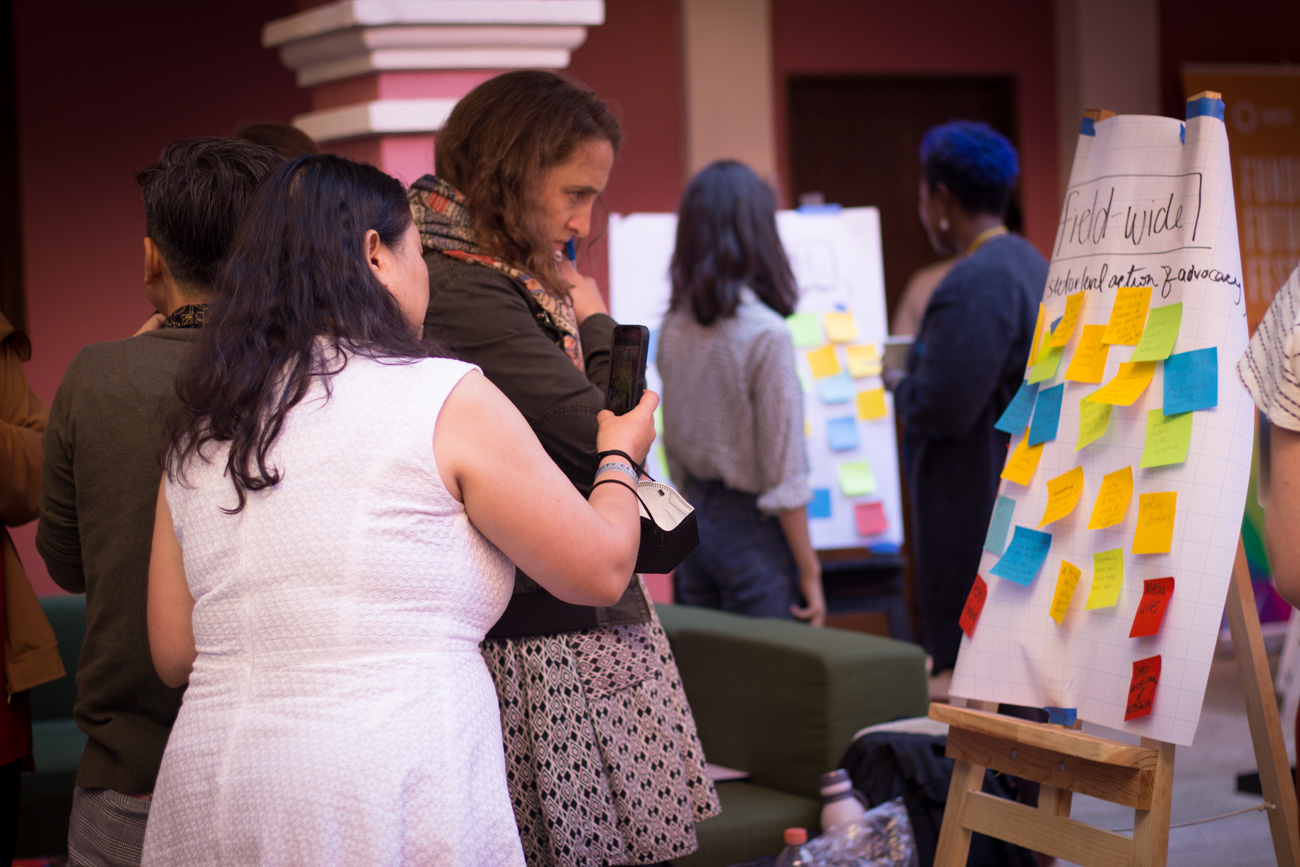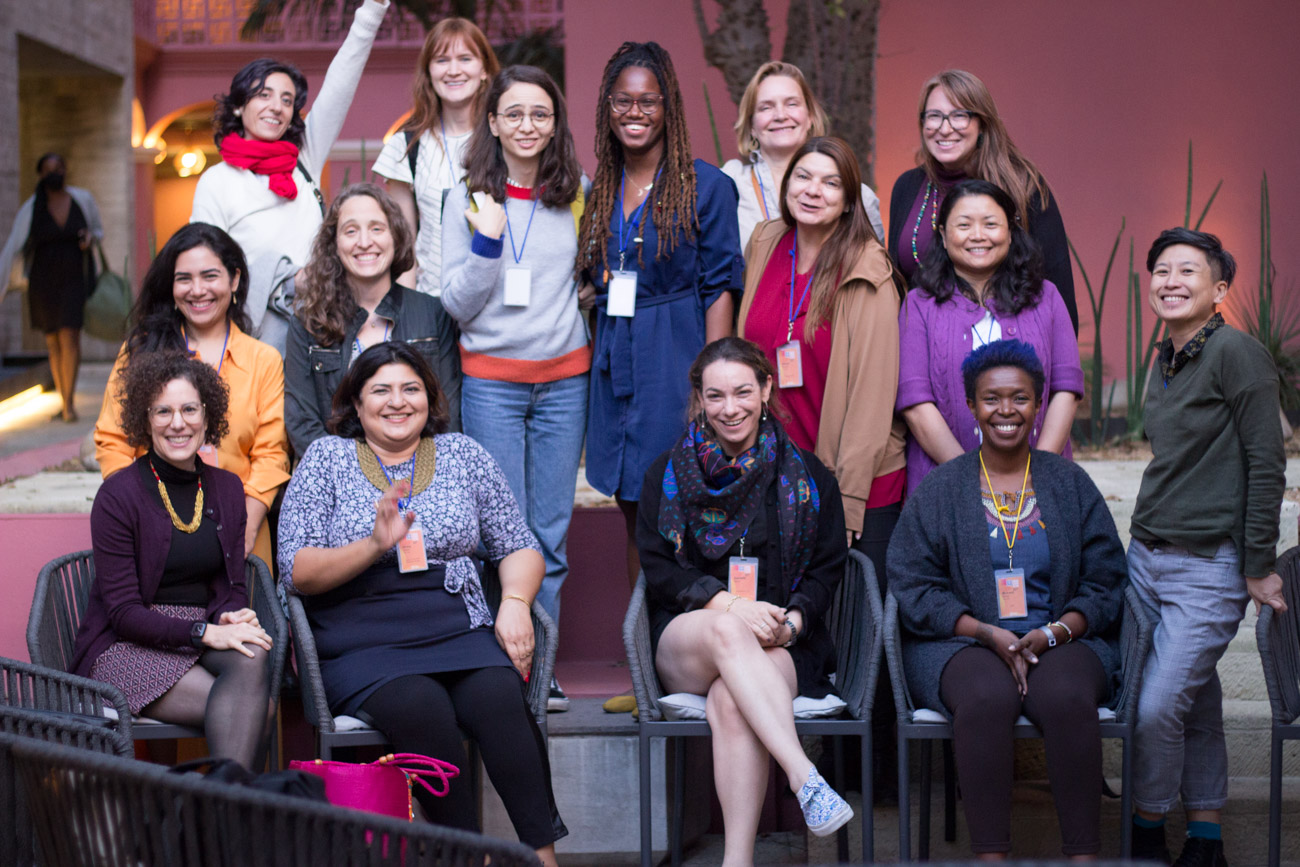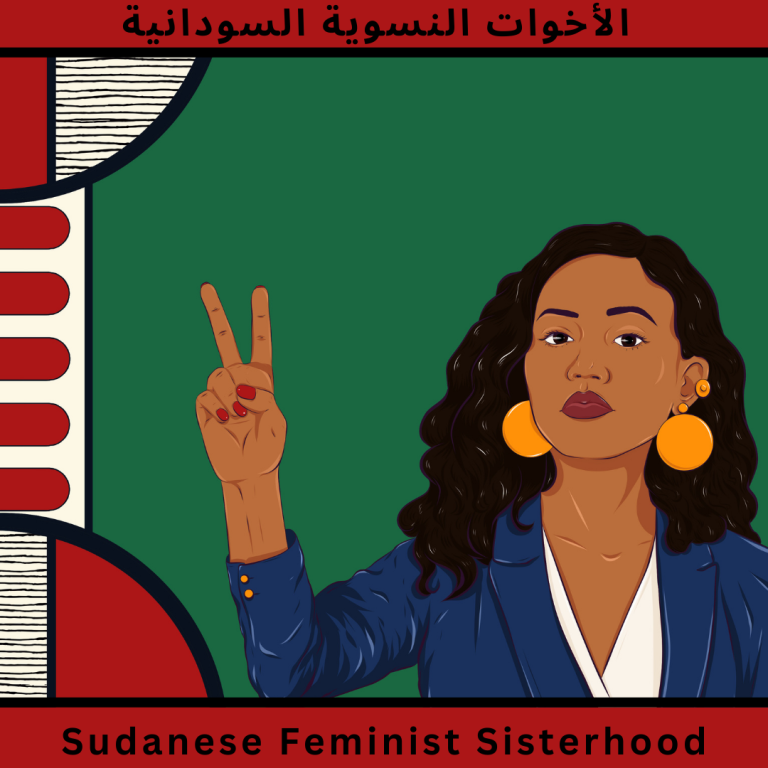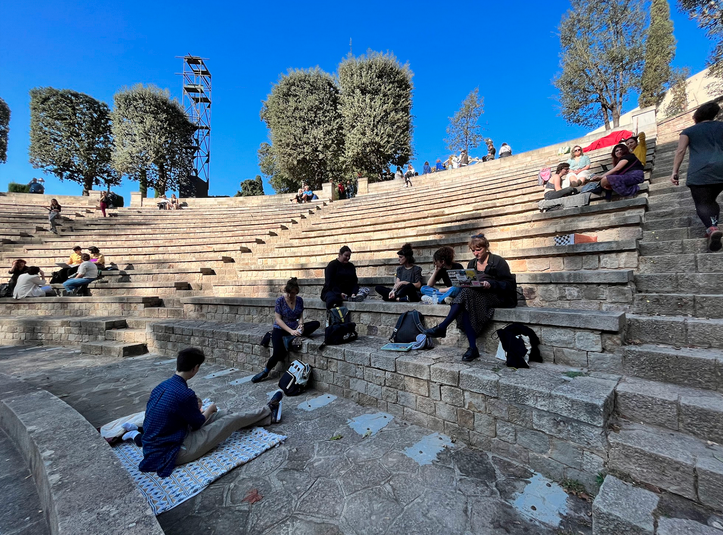Reflections on Discovery Journey on Crisis Preparedness for All Funders
Soheila Comninos and Kristy Delgado, Open Society Foundations, and Cath Thompson, Peace and Security Funders Group.
As part of the Discovery Journeys organized during the HRFN Funding Futures Festival, the Open Society Foundations, the Peace and Security Funders Group (PSFG) and Global Fund for Women co-organized a session on crisis preparedness for funders. The purpose of the session was to create a space for funders to share best practices and surface gaps around building conflict and crisis preparedness into their funding strategies. We sought to compile practical considerations, like what should be included within a crisis preparedness strategy and how we might build contingency plans that follow a disruptive event throughout its life cycle (from anticipation to response to recovery).
Given the increase in complex crises and armed conflicts, this session was born out of HRFN and PSFG’s interest in cultivating a culture of preparedness among funders. Funders increasingly face complex challenges to their programming strategies and funding operations within acute crises and closing civic spaces. Regardless of any specific funding goals or portfolios, having a crisis preparedness strategy is crucial for enabling the work of grantee partners in volatile environments and supporting vulnerable communities.
The session gathered over 20 participants from diverse institutions—including large private foundations, intermediary funders, and rapid response civil society actors— in a forward-looking workshop that produced tangible recommendations for bolstering preparedness across the sector. We started by inviting participants to reflect on what has been helpful for their crisis and conflict preparedness work based on their experience of responding to disruptive events over the past few years. Participants were then asked to arrive at specific and actionable recommendations. We arranged everyone’s contributions into three categories:
- those which support preparedness internally within an organization’s policy and practice;
- what would improve preparedness externally with regard to grantee partners; and
- what is needed to support field and sector-wide preparedness.
After collecting concrete ideas and tools for each of the three categories, participants were separated into small groups to identify areas of connection, potential collaboration, and lingering gaps or areas where the sector needs additional support and/or expertise.
Several key threads emerged, including:
- Flexible funding: A plea for more core, long-term, and flexible funding to support organizational and preparedness efforts that build resilience into entire movements, rather than a focus on funding for preparedness specifically.
- Mental health support: The urgency to prioritize mental health support for staff responding to crises within funding organizations as well as bolstering this support for human rights defenders, peacebuilders, and communities affected by crisis.
- Trust-building and local knowledge: The value of local knowledge with specific implications for hiring practices, funding allocations to groups on the ground, and intentionally including local actors in the design of preparedness strategies and responses for funders. Having existing trusting relationships and structures is essential to any crisis response strategy.
- Crisis management capacity: A recognition of the general lack of crisis management expertise (e.g. skills, tools, processes) among funders and frontline groups, requiring the need to learn and build relationships with other sectors including in the humanitarian, tech, and security spaces.
A key takeaway from the discovery journey was everyone’s appetite for further exchange around developing dedicated crisis preparedness strategies, curating spaces to learn about specific response practices, and building tools to improve our collective response to conflicts and crises. The group discussion surfaced two overall and cross-cutting calls for action:
- The need for greater coordination and information sharing among funders as well as within and across movements and between sectors (e.g. with humanitarian and development actors). This would help reduce duplication, break down silos, and increase effectiveness.
- A call to prioritize preparedness and post-recovery and not let our attention be monopolized by the crisis response phase and the media spotlight. The under-funding of “forgotten” or invisible crises as well as preparedness and recovery efforts are well-known issues that require a comprehensive strategy.
Despite the numerous challenges funders face around improving their conflict and crisis preparedness, mounting interest and mobilization around this topic signal our collective readiness to tackle them and better serve our grantee partners and affected communities.
Learn more about the session co-organizers:





